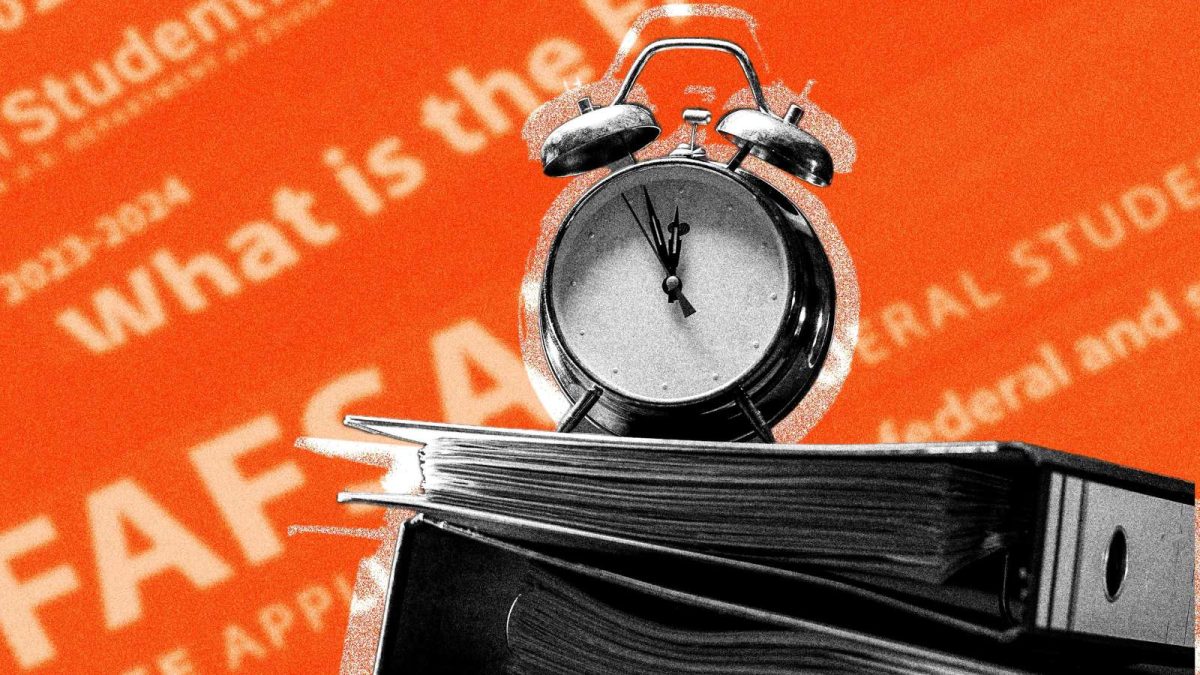Across the country, more than 17 million students submit the Free Application for Federal Student Aid (FAFSA) in hopes of obtaining financial aid to afford higher education.
However, the U.S. Department of Education’s 2024-2025 “Better FAFSA” form, which boasts “a more streamlined application process” and “expanded eligibility,” has fallen woefully short of what it claims. The application is riddled with operational glitches and constant delays, rendering it largely inaccessible for many students and families whom the FAFSA is meant to assist.
To date, there are still open issues being reported to FAFSA’s Issue Alerts, depriving entire student demographics of the aid that they deserve. For example, in a complication reported on Jan. 4, a parent without a Social Security Number was unable to even start the FAFSA for their student, which is a required component for the application to be processed.
The FASFA has been historically problematic because of its convoluted and lengthy format. Back in 2020, Congress urged the Department of Education to completely reform the FAFSA by shortening the length and shifting to a digital system.
However, Congress never supplied them with funding, while the Federal Student Aid department was still involved in rebuilding loan forgiveness programs. With a three-year development period, the 2024-2025 FASFA’s soft launch was released three months later than expected on Dec. 30, 2023 with restricted access. Ultimately, lofty goals coupled with scarce funding and resources may have contributed to the current system’s failures.
The Department of Education alerted higher education institutions that they would have to delay their report on how much aid was being allocated to each student from the original date of Jan. 30 to the first half of March.
Consequently, colleges are left to hastily figure out how to process and roll out financial aid offers in a timely manner without essential information from the FAFSA. This year, the long-standing college commitment day of May 1 might not be feasible since students are not being given sufficient time to weigh their financial options.
Beyond higher education systems, students are bearing the brunt of the problem. Federal financial support programs were intended to expand access to higher education, especially for students who come from backgrounds that prevent them from pursuing it otherwise.
In the end, FAFSA’s inaccessibility most severely affects students who are unable to afford college tuition in the first place. Without the certainty of knowing their financial prospects, many students may feel compelled to make a consequential financial decision that will have reverberations for decades to come; others may opt for deferring their enrollment until the FAFSA application is fully operational, and others yet may be so discouraged by the obstacles of the process that they completely forgo the possibility of higher education and advancing their professional lives.
In the meantime, institutions and other scholarship agencies that are dependent on student financial information provided by the FAFSA are unable to organize financial aid packages or offer a concrete timeline to students; this leaves a far too precarious situation for many students whose finances are a crucial component when choosing a college.
It is vital for higher education universities to swiftly rectify these issues by extending both their financial aid and enrollment deadlines. The Department of Education must strive toward supporting the higher education community through a streamlined and organized rollout of the FAFSA. It is simply not practical for colleges, institutional administrators and students to decide how their higher education journey will pan out based on last-minute setbacks from a faulty system.



![Social science teacher Nick Madrid’s desk and floor are littered by ungraded papers due to burnout. “My desk hasn’t been this messy before and it’s been this way ever [since] I started grading papers,” Madrid said.](https://whshoofprint.com/wp-content/uploads/2025/04/IMG_1659-900x1200.png)


